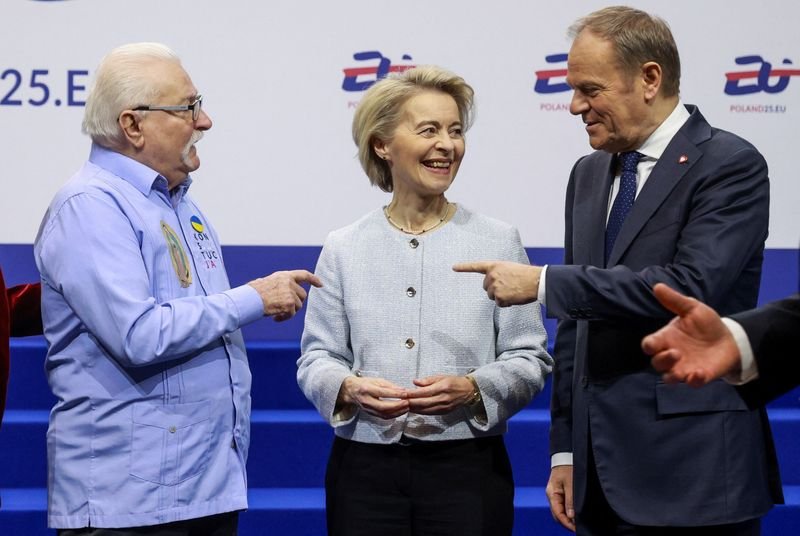EU eyes tweak to fiscal rules to allow more defence spending
Published by Global Banking & Finance Review®
Posted on February 7, 2025
3 min readLast updated: January 26, 2026

Published by Global Banking & Finance Review®
Posted on February 7, 2025
3 min readLast updated: January 26, 2026

EU considers redefining defence investment to allow more spending without breaching fiscal rules, amid security threats and NATO spending pressures.
By Jan Strupczewski
BRUSSELS (Reuters) - European Union governments are considering a wider definition of what is defence investment to allow for more government spending that would not trigger punitive EU action for excessive borrowing under the bloc's fiscal rules, officials said.
The push for more leeway on defence expenditures comes with Russia's war in Ukraine about to enter its fourth year and U.S. President Donald Trump raising pressure for more European military spending well above the NATO target of 2% of GDP.
EU government leaders agreed at a summit on Monday to do more to bolster defences against Russia and other threats by hiking spending and filling gaps in their military capabilities.
A paper prepared by Poland, which holds the rotating EU presidency that sets the agenda for the bloc's work, argues that the current interpretation of defence investment as only military equipment like tanks or planes is too narrow.
"In view of the security challenges, the interpretation of the increase in defence investment should be broad. It should include not only the purchase of military equipment, but also capital support for arms and ammunition factories in order to build defence capabilities," the paper, seen by Reuters, said.
It also mentioned investment in infrastructure used by the army, as well as infrastructure used for both civilian and military purposes such as the construction of shelters in residential buildings or civil defence spending, as categories that should be eligible to be defined as defence investment.
EXEMPTION
The definition is important because under the new EU fiscal and debt rules, which limit government deficits to 3% of GDP and debt to 60% of GDP, a country exceeding the 3% deficit ceiling would not be placed under disciplinary action if an emergent excess is due to spending on defence.
The new rules also set an annual net expenditure growth path for each EU government that is calculated in a way so as to gradually, over four to seven years, bring public debt down.
Excluding broadly understood defence investment from such calculations on how much a government can raise net expenditure every year would give large additional leeway to governments.
Officials said that also in the discussion on boosting defence spending without breaking EU limits on borrowing was the idea of using "national escape clauses" that allow governments to apply to the European Commission to have the borrowing limits suspended because of a severe economic downturn or external factors outside the control of the government in question.
This option, however, was not part of the Polish proposal and was more controversial, enjoying less support, senior euro zone officials told Reuters.
Commission President Ursula von der Leyen said on Monday after a meeting with EU leaders on defence financing that she was ready to use the full flexibility in EU budget rules, called the Stability and Growth Pact - to allow for a significant increase in defence spending.
Trump, who has raised European doubts about the U.S. commitment to the NATO security alliance, has said NATO's European members should spend 5% of GDP on defence - a figure no NATO member including the U.S. currently reaches.
(Reporting by Jan Strupczewski; additional reporting by Andrew Gray and Lili Bayer; editing by Mark Heinrich)
The article discusses EU's consideration to redefine defence investment to allow more spending without breaching fiscal rules.
To provide more leeway for defence spending amid rising security threats and pressure to meet NATO targets.
Poland proposes including infrastructure and capital support for arms factories in the definition of defence investment.
Explore more articles in the Headlines category


